With the growing use of generative AI tools like ChatGPT, Claude, and Google’s AI mode, schools are tasked with monitoring yet another set of platforms to make sure what users see accurately reflects their community. While this can feel overwhelming, the good news is that many of the tried and true SEO tactics your school is already using still apply. In other words, you can shape the conversation on AI tools—sometimes called Generative Engine Optimization (GEO)—in much the same way you approach traditional Search Engine Optimization (SEO). Let’s break it down:
What is SEO vs. GEO? And why does it matter for independent schools?
First, it’s important to recognize the difference between optimizing your school’s website for search engines versus generative engines. Traditional SEO and GEO have a lot in common, as both aim to increase your website's online visibility. SEO uses strategies and quick fixes to help your pages show up higher in search results when someone types in certain keywords.
The main difference is how “visibility” works in each approach.
With SEO, you’re trying to rank higher on search engines like Google to get more clicks to your website. With GEO, you’re trying to get your content chosen by AI tools so that when someone asks a question, the AI uses your content as part of its answer.
Here are a few best practices that work for both:
1. School program keyword research and ranking potential
Use keyword research to guide your content strategy. This means identifying what people are searching for (search volume) and balancing that with how likely you are to rank for those terms (ranking potential).
For example, “Orton-Gillingham” might have a high search volume, but you’ll also want to check whether your school realistically has the authority to rank ahead of other sites. If it does, then that might be a great topic for you to write a blog or page about. Be sure to tailor your content so it stands out and delivers value for those looking for schools with Orton-Gillingham techniques to support students with dyslexia or language-based learning differences. This exercise matters because it balances demand with your ability to be the supplier of this information in order to drive right-fit users to your site. This also helps generative AI tools because, as parents ask questions, your content could get picked up.
While the tools you may need differ slightly between SEO and AI platforms, the need is the same. Some of our favorite keyword and ranking potential tools are Moz, SEMrush, Ahrefs, and Keywords Everywhere. Check them out to see which topics hold a great opportunity for your site to stand out.
2. On-page optimization for key programs
It is important to make sure your school or summer camp website is easy to understand for both people and bots. Use clear headers that align with search queries, write in a reader-friendly style (we love the Hemingway Editor!), and make smart use of internal links to direct users to other key areas of your site. This has been an SEO best practice for many years. This MOZ resource explains why and also provides other tips for on-page optimization.
But remember, with GEO, it’s not just about appearing in search results and getting people to click. Generative AI needs enough high-quality information from you to summarize responses for users. That means also ensuring you publish content that goes deeper into topics and answers broader questions in a clear, trustworthy way. For example, write content about why a sleepaway camp is a beneficial experience for kids, versus just listing facts about the sleepaway program to help with both SEO and GEO.
3. Off-Page SEO for your school's online directories
Don’t forget your off-page presence, or Local SEO. For independent schools and summer camps, that means auditing, verifying, and optimizing school and summer camp directories. It also means keeping your info accurate across major business directories and social channels—think Google Business, Apple Maps, Yelp, Facebook, Wikipedia, etc. Even if families don’t always use those sites to find schools directly, search engines and generative AI tools scan them to decide which information to display.
It also means keeping your info accurate across major business directories and social channels—think Google Business, Apple Maps, Yelp, Facebook, Wikipedia, etc. Even if families don’t always use those sites to find schools directly, search engines and generative AI tools scan them to decide which information to display.
4. Structured data for your school website
Finally, make sure your website includes structured data—information organized in a consistent format that makes it easy for machines to understand and pull into results. This helps ensure that both search engines and AI tools can accurately represent your school online.
For schools and camps, this means clearly publishing:
- Your school name and website
- Who you serve (grade levels, type of school)
- Location and contact info
- Social media handles
- Hours of operation
Once you have verified that this content is on your site, be sure it is added to structured data by following this Google resource.
Reach out to EMG if you need a partner to help you navigate these overlapping strategies so your school can strengthen its visibility for both SEO and GEO. And when you do, you’re also helping families find and trust the information they see about you online.

